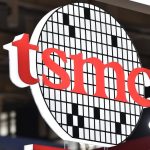Here’s another edition of “Dear Sophie,” the advice column that answers immigration-related questions about working at technology companies.
“Your questions are vital to the spread of knowledge that allows people all over the world to rise above borders and pursue their dreams,” says Sophie Alcorn, a Silicon Valley immigration attorney. “Whether you’re in people ops, a founder or seeking a job in Silicon Valley, I would love to answer your questions in my next column.”
TechCrunch+ members receive access to weekly “Dear Sophie” columns; use promo code ALCORN to purchase a one- or two-year subscription for 50% off.
Dear Sophie,
We’re an early-stage startup that — like many other companies — is facing a significant challenge when it comes to recruiting talent. We have not posted job openings internationally, but we’ve received some applications from international talent.
This is all new territory for us. What’s your advice for hiring internationally? Also, I know the H-1B lottery is fast approaching.
Can you explain a bit more about this process?
— Eager Early-Stage Startup
Dear Eager,
Yes, the H-1B lottery is fast approaching! The period for registering H-1B candidates opens in March; there are a few steps companies need to take before then if they have never before participated in the H-1B lottery process. First, be sure to create an account with U.S. Citizenship and Immigration Services (USCIS), which conducts the lottery. Given this timeline, your company should determine as soon as possible whether the positions you are looking to fill and the prospective international talent you are looking to hire would qualify for an H-1B specialty occupation visa.
Check out my column in TechCrunch+ last week for more specifics on the lottery process. To bypass the H-1B lottery — or if a candidate is not selected in the lottery — your company could consider getting a cap-exempt H-1B for the candidate. Transferring an individual’s H-1B to your startup is also an option. To find out more about that process, take a look at this Dear Sophie column.
A futurist lens on international hires
I recently had a fascinating conversation with Jamais Cascio, a futurist and distinguished fellow at the Institute for the Future in Palo Alto. Cascio has some wonderful insight relevant to your question.
The population in the U.S. is getting older and the birth rate is declining; as such, we will increasingly need to look to immigration to keep our economy going. Cascio discusses three mindsets for dealing with radical changes in this chaotic world to remain strong as a company and succeed into the future. This advice is highly applicable to companies such as yours as you embark on an effort to hire from abroad.
The three mindsets that Cashio said would benefit companies are:
- Resilience: Being able to withstand a shock to the system without breaking. For example, he said companies that have just-in-time delivery models are very brittle and prone to break down compared to those that have built-in slack into their system. Building in slack often requires additional resources and reduced efficiency and profit but offers built-in resilience.
- Improvisation: Remain creative and nimble and be ready to embrace change.
- Empathy: Probably the most critical of the three, this involves recognizing the humanity in others and what we do matters to others now and in the future. (I loved hearing that the role of the heart is and will be critical for business success!)
Embracing these mindsets while developing an immigration strategy that offers stability for international talent will be key to attracting and retaining talent and creating a company culture that fosters innovation and endurance. Listen to my podcast, “Tips for Companies to Support Valued Humans,” in which I discuss this in more detail.

Image Credits: Joanna Buniak / Sophie Alcorn (opens in a new window)
Specific visas to consider
Before we dive into visa specifics, please be aware that I recommend you consult an experienced immigration attorney, who can help you devise an immigration strategy for prospective international hires, as well as provide guidance on what visas would be appropriate given the job opening and prospective candidate. Take a look at a previous Dear Sophie column in which I offer an overview on immigration-related matters you should focus on if your startup does not yet have someone handling HR.
O-1A visa
If your prospective hires don’t make it through the H-1B lottery process I mentioned above, or you need to get them here more quickly than October and you can’t take the risk that they might not be selected in the H-1B lottery this year, a great option is the O-1A extraordinary ability visa. More and more of our startup clients are opting to pursue it for key executives and individual contributors with niche expertise. While the bar for qualifying for the O-1A is much higher than for the H-1B, the process for getting an O-1A is much quicker. And the O-1A does not have an annual cap or lottery process to contend with.
Visas for talent from specific countries
Specific visas exist for talent from Australia, Canada, Chile, Mexico and Singapore.
If the job candidate is an Australian national, an E-3 visa will allow that individual to work in the U.S. in a specialty occupation, just like an H-1B. E-3 visas also require the sponsoring employer to file a Labor Condition Application with the U.S. Department of Labor, as is required with H-1B petitions. A maximum of 10,500 E-3 visas is available each year.
Is the job candidate a Chilean or Singaporean national? If so, the candidate may qualify for an H-1B1 specialty occupation visa, which is an H-1B visa earmarked for citizens of Chile and Singapore. Thanks to special treaties the U.S. has with those two countries, professionals may qualify to receive H-1B1 visas on a fast-track basis. Each year, 1,400 H-1B1 visas are reserved for Chileans and 5,400 are reserved for Singaporeans — and rarely are those visas completely exhausted.
Professionals from Canada and Mexico can come to the U.S. to work under a TN visa, which was born out of trade treaties between Canada, Mexico and the U.S. TN visas are limited to professions listed in treaty agreements, but most of these jobs overlap with H-1B specialty occupations.
Some good news: Through the end of 2022, consular officers can now waive the in-person interview requirement for some individuals seeking some nonimmigrant (temporary) visas, including H-1Bs and O-1s. Individuals who are applying for a visa in their country or nationality of residence may have the interview waived if any of the following apply:
- Previously issued any type of visa.
- Never been refused a visa unless it was overcome or waived.
- No ineligibility.
- Citizens or nationals of a country that participates in the Visa Waiver Program.
Wishing you every success!
Sophie
Have a question for Sophie? Ask it here. We reserve the right to edit your submission for clarity and/or space.
The information provided in “Dear Sophie” is general information and not legal advice. For more information on the limitations of “Dear Sophie,” please view our full disclaimer. You can contact Sophie directly at Alcorn Immigration Law.
Sophie’s podcast, Immigration Law for Tech Startups, is available on all major platforms. If you’d like to be a guest, she’s accepting applications!
Powered by WPeMatico






